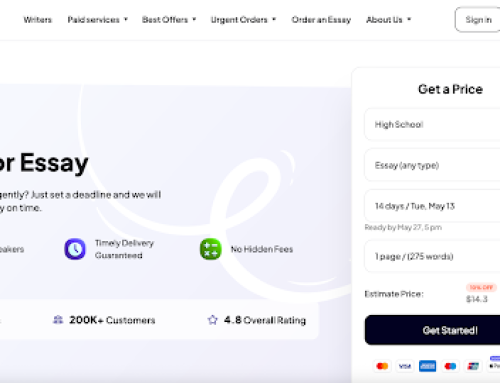Education is one of the few doors that must stay open to everyone, no matter where they come from or what papers they hold. Many immigrant students choose online high school programs on their path to building a future.
And yet behind the convenience of virtual classrooms lies a complex web of legal rights and protections that every student and family should be aware of.
Immigration status can raise questions: what information schools can request, how they handle privacy, and whether these rights extend to online education.
Keep reading to learn the important legal protections that support immigrant students in online high school programs and when it might be time to seek advice from immigration lawyers.
Understanding the Legal Right to Education
Every student in the United States has the right to a public education, and their immigration status doesn’t affect that. That right isn’t up for debate or dependent on politics because it’s protected by the Constitution.
In 1982, the U.S. Supreme Court made this clear in Plyler v. Doe, ruling that schools can’t deny access to education based on a student’s immigration status. That decision still shapes how immigrant and undocumented students are treated in classrooms across the country today.
The same rule applies to online high school programs. It doesn’t matter if classes happen in a physical classroom or through a laptop screen; the right to enroll and learn stands firm.
Schools and online education providers must give immigrant students equal access to enrollment, instruction, and resources.
Enrollment Rules and What Schools Can (and Can’t) Ask For
When it comes to enrollment, many immigrant families worry about what information schools can legally request. The truth is simple: schools can’t ask for immigration papers, green cards, or social security numbers as a condition for enrollment.
What they may ask for is proof of residency, which shows that the student lives within the district or state. Still, this doesn’t mean they can set unfair barriers.
Families can provide different types of documents, from lease agreements and utility bills to letters from shelters or community organizations. It’s important to know that the goal here is to confirm residency, not immigration status.
This topic matters most for students in uncertain living situations. Under federal law, homeless students have additional protections that allow them to enroll even if they can’t provide standard documents.
Schools need to make it possible for every student to attend classes and continue their education without fear of discrimination or exposure.
Privacy and Protection from Immigration Enforcement
Another usual worry for immigrant families is that sharing personal details with a school could somehow put them at risk. It’s a fair concern, but federal law provides strong protections for student privacy.
Immigration enforcement officers don’t have the authority to walk into a school or request student information without a proper court order. Schools are not required to share a student’s immigration status and can challenge any administrative subpoena that asks for it.
In simple words, student records are not open doors for immigration enforcement.
To strengthen these protections, many schools and districts adopt what’s known as Safe Zone policies. They make it clear that the school is a place of learning, not an extension of immigration enforcement, and prevent staff from collecting or disclosing immigration information.
If a school does receive a request for student records or a family feels pressured to reveal immigration details, it’s best to find help from professionals — immigration lawyers.
Equal Access in Online High School Programs
One of the main perks of online high school programs is the flexibility they bring, but they must also uphold the same legal rights that protect students in traditional schools. Immigration status can’t be used to limit who gets to enroll or what kind of education they receive.
Equal access doesn’t just mean allowing students to sign up. It also means providing the same level of academic support, language assistance, and other types of support, as well as technical resources, that any other student would expect.
Online programs have to make sure immigrant students aren’t excluded simply because of where they were born or what documents they lack.
National Education Association (NEA) Immigration Guidance Booklet, 2025, notes that all students, no matter their immigration status, have a right to enroll in public school, free of charge.
Conclusion
Education should never be just a privilege tied to paperwork, but one of the most basic rights that belongs to every student. And whether it’s in-person or online doesn’t change that right. Every young person deserves the chance to learn and build a future.
Schools and online programs are responsible for making that happen. When they treat every student fairly, protect their personal information, and follow the law, they can create a safe place for learning.





